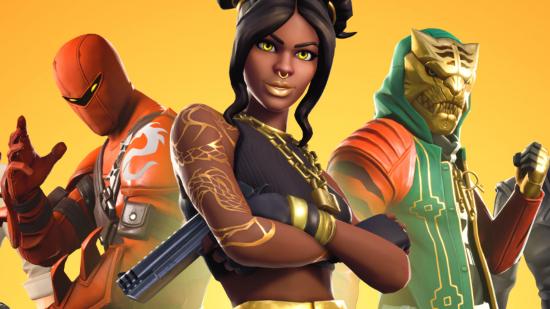Epic Games CEO Tim Sweeney has said on Twitter that “if Steam committed to a permanent 88% revenue share […] without major strings attached, Epic would hastily organise a retreat from exclusives (while honouring our partner commitments) and consider putting our own games on Steam.”
Sweeney has often claimed that the 30% cut Valve takes from each game sold on Steam is one of the biggest problems in PC gaming, damning it again as “the #1 problem for PC developers, publishers, and everyone who relies on those businesses for their livelihood. We’re determined to fix it”.
That “no major strings attached” line is interesting. Pressed for clarification, Sweeney says the key points are that “games can use any online systems like friends and accounts they choose, games are free to interoperate across platforms and stores, the store doesn’t tax revenue on other stores or platforms,” and “if you play on multiple platforms, stuff you’ve bought can be available everywhere.” That’s a lot of small print, but Steam meets quite a lot of it already – by letting you add non-Steam games, for example.
Sweeney has drawn a fair bit of cynicism in the replies, which will come as no surprise to anyone who’s been following the reaction to Epic’s strategy of chasing exclusives.
He is accused of “fake altruism“, with the suggestion that “the 12% nonsense” is a ruse to amass goodwill. It may be that, and I’m all for healthy scepticism of businesses, but it’s clearly also an enormous reduction in the revenue taken from selling someone else’s work. Other players continue to point out Steam’s superior features and willingness to shoulder regional pricing fees, which are equally undeniable.
If Steam committed to a permanent 88% revenue share for all developers and publishers without major strings attached, Epic would hastily organize a retreat from exclusives (while honoring our partner commitments) and consider putting our own games on Steam.
— Tim Sweeney (@TimSweeneyEpic) April 25, 2019
While it’s vanishingly unlikely that Valve would ever move to a 12% cut – as Sweeney surely knows – it’s worth noting that Epic has (probably) already forced a climbdown. Last year, Valve announced that it would lower its 30% cut for every sale after a game earns $10m. It didn’t explicitly mention Epic, but the move came just three days before the Epic Games Store, with its 12% cut, was formally announced after some rumour.
With all that said, here’s some interesting further reading from Ars Technica about why Valve may actually collect less than the 30% figure, and the additional overheads it has to wrestle with.
Read more: check out these exciting upcoming PC games
Last month, Sweeney predicted that we’d soon see lower prices for games on the Epic Store as developers passed savings from their larger revenue share on to consumers. Seems optimistic to me, with the $60 price point so firmly established, but fingers crossed, I guess.
